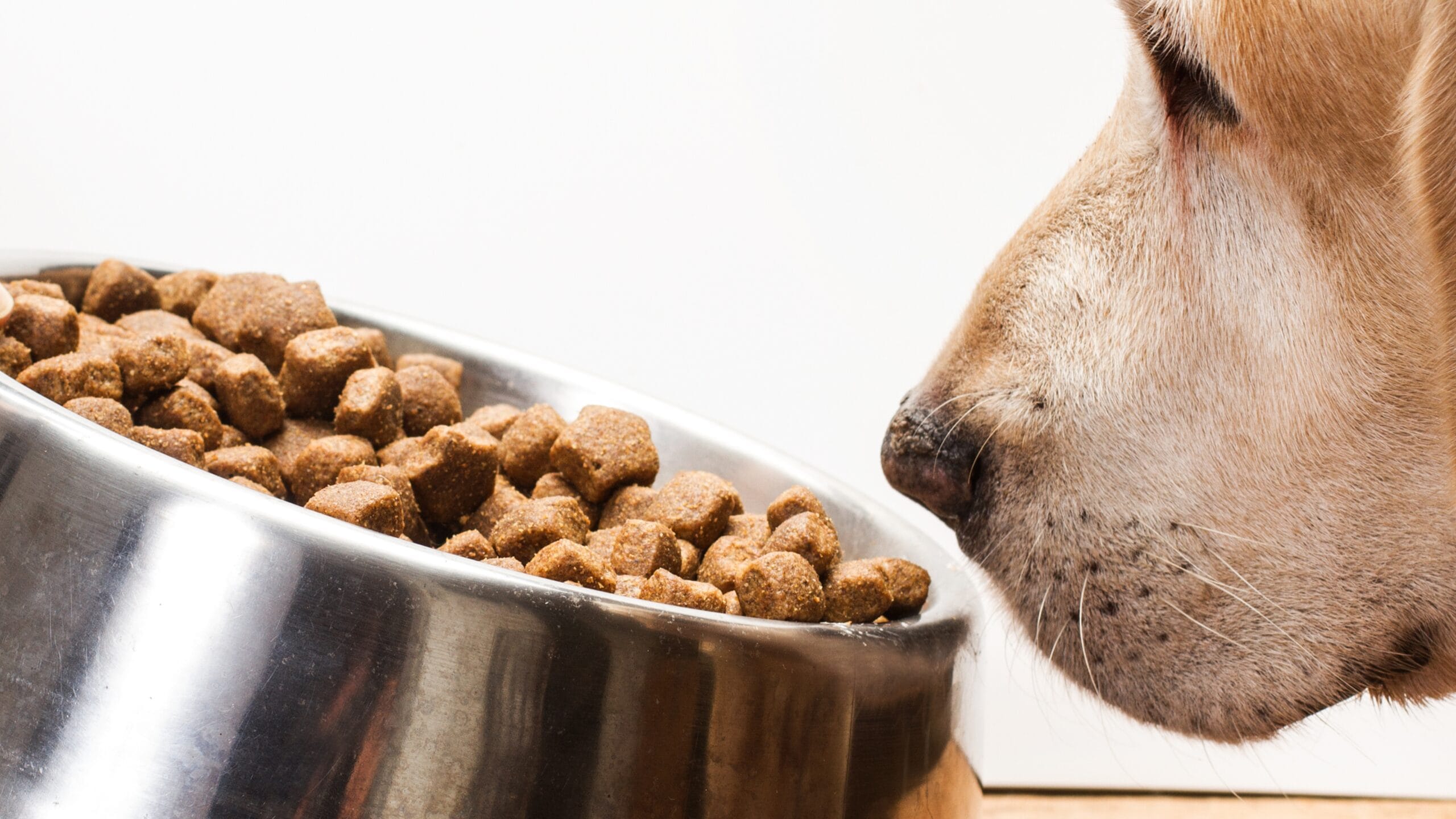Labradors are the world’s biggest foodies. And at this point-Labradors eat a lot and become fat and lot of lab parents agree with this. Labs also know that they’re getting fat but their genes uff, make them even more hungry, even knowing that they will get obese. At this point, a lot of lab parents ask the professionals and vets- What gene makes fat Labradors permanently hungry? And to avoid that, they frequently ask -How do I stop my Lab from eating everything? Now, you have come to know what is going to be in this today’s article. So, without further delay, let’s answer the frequently asked questions by lab parents or owners.
What gene makes fat Labradors permanently hungry?
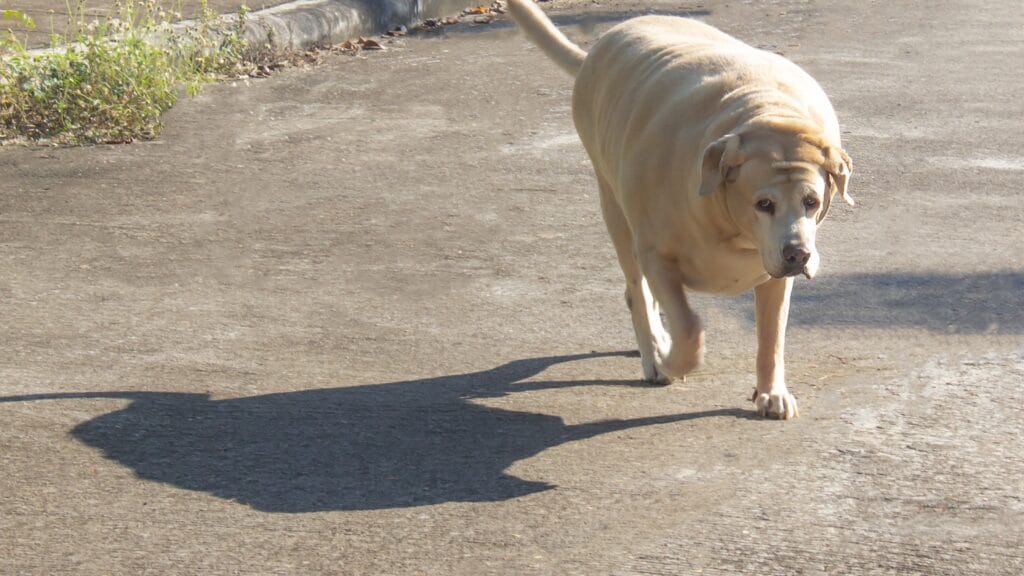
Labs eat a lot. So, they become fat. But this eating is not normal. This abnormal eating is because of the POMC gene mutation that makes them permanently hungry and thus become fat. The gene mutation works by malfunctioning the POMC gene function. This POMC gene delivers message to the brain that lab has eaten some food, so make him feel full. But this gene mutation disrupts the functioning of POMC gene but taking the POMC gene under its control and ordering it to tell the brain that lab has not eaten (even if he has eaten), so make him feel hungry.
So, this way lab who has gene mutation eats a lot and burns little calories while resting or doing some other work. This eating a lot and not burning enough calories makes lab fat.
How do I stop my lab from eating everything?
Labs love food. Sometimes lab eats undesirable things that he should not eat. So, to make him stop from eating everything, a lot of training, supervision and professional help is needed. So, the following are some steps that will stop your lab from eating everything:
👉 Teach him the ‘leave it’ command:

The ‘leave it’ command is used to control impulse that causes lab to eat. To teach him the leave it command you can take a treat in your hand and command him ‘leave it’. When he ignores the treat, you can reward him with a treat or his favorite toy or food. You can also practice this command with some toys.
👉 Teach him the ‘drop it’ command:
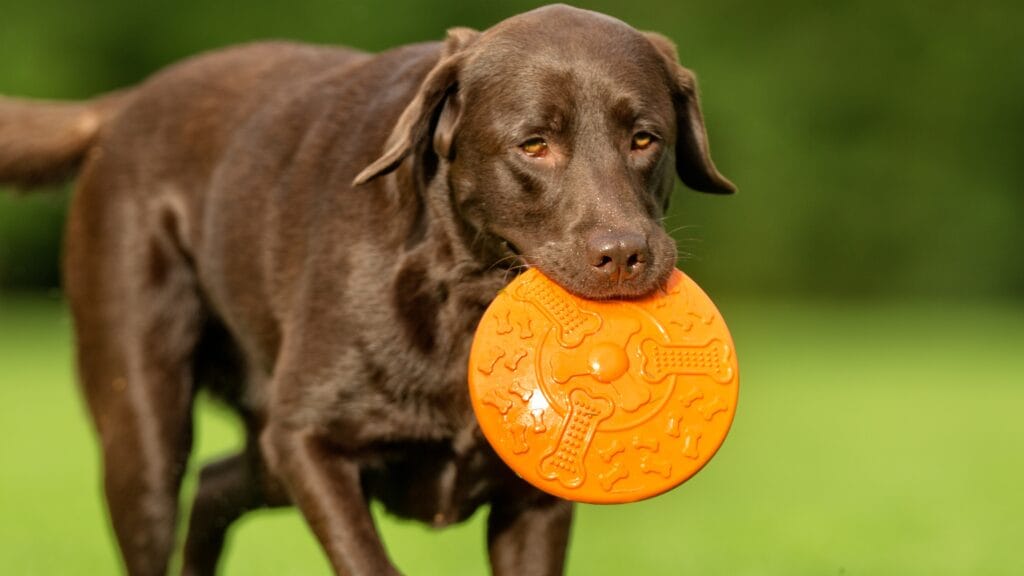
Like the ‘leave it’ command the ‘drop it’ command is also used to control lab’s impulse. The ‘drop it’ command should be used when the lab picks up something undesirable. If he drops the undesirable thing that he picked up on the command, then reward him with his favorite thing.
👉 Make your home dog proof:

A lab may eat or bite some parts of your furniture or carpet. So, to keep your furniture and carpets safe from Labradors then, remove the furniture or safeguard it.
👉 Use a leash outdoors:

Outside the house, you should always put your lab on leash to prevent or avoid scavenging.
👉 Use chew toys:
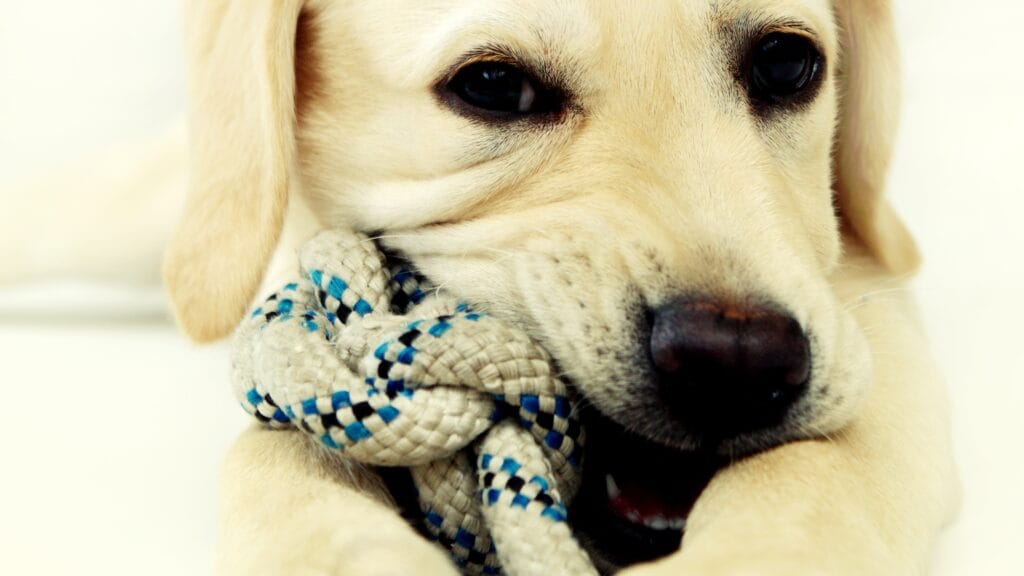
If your lab chews on your furniture, socks, clothes, or carpets, then you should buy him chew toys to keep him engaged.
👉 Mental stimulation toys:
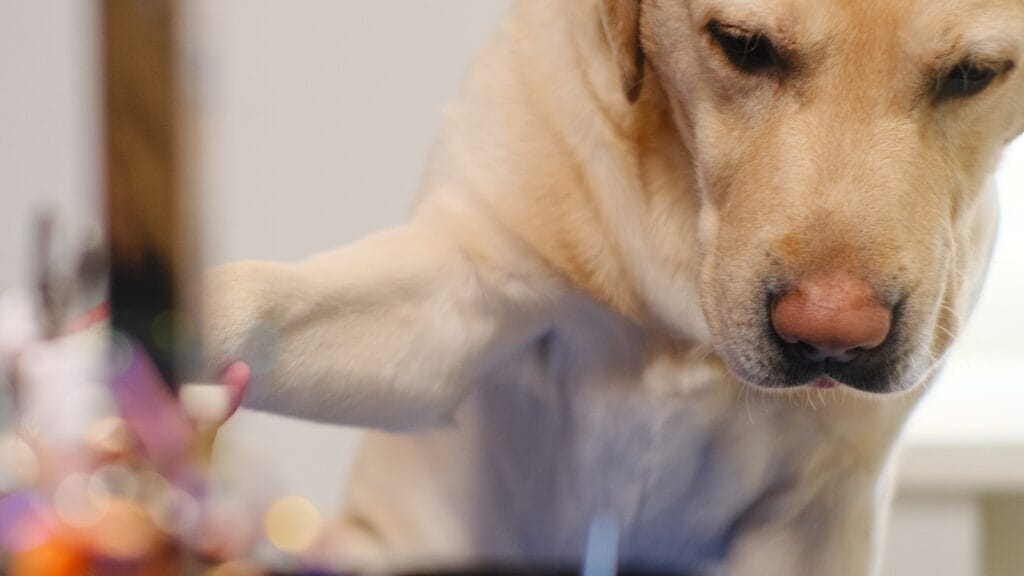
If your lab chews or bites your belongings out of boredom, then you could give him mental stimulation toys that will keep him mentally busy. This will also help in improving his puzzle skills.
👉 Reduce hunger:
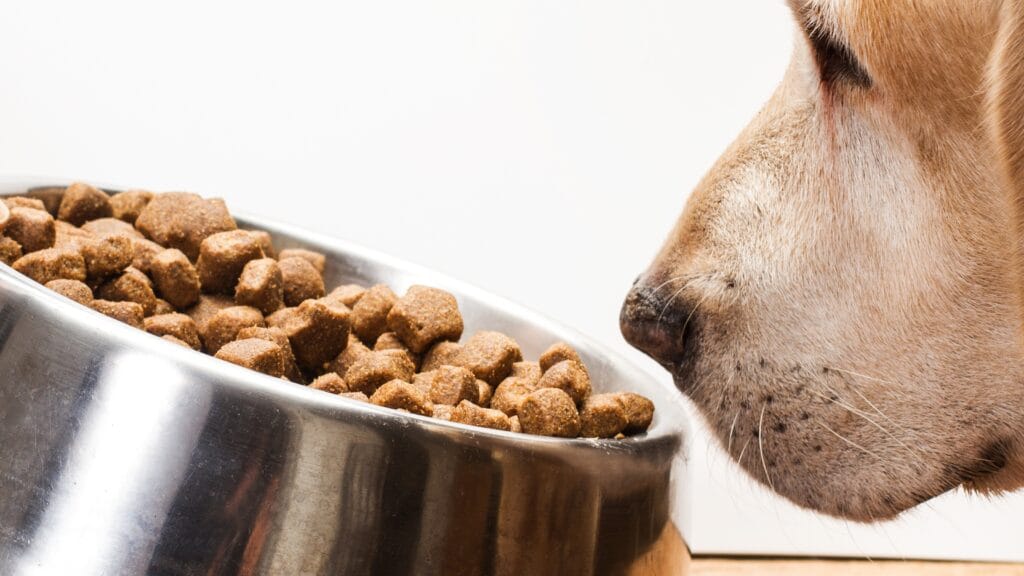
You should give them nutritionally complete diets to make their hunger less.
👉 Schedule regular meals:
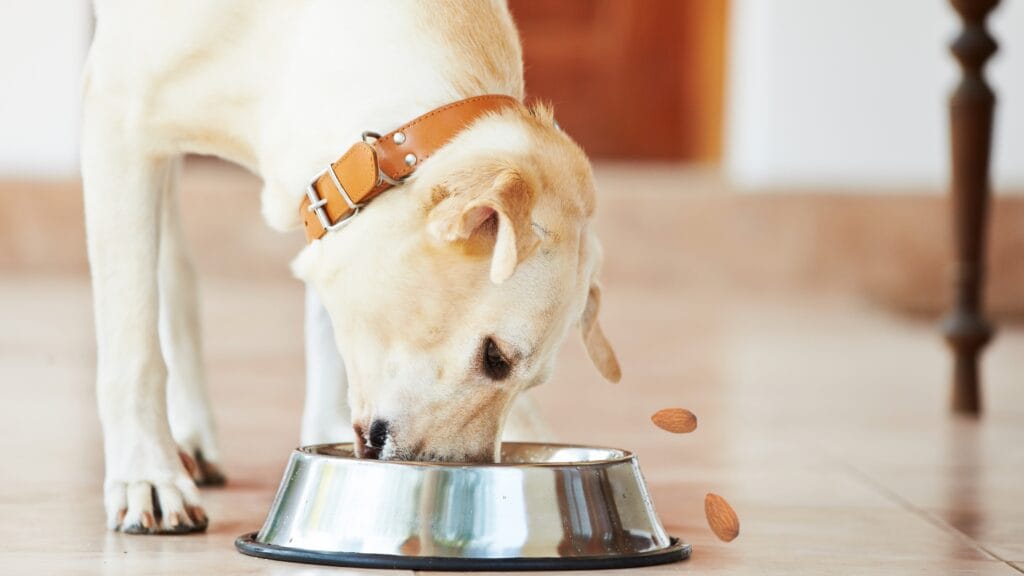
Ensure that you feed him regular meals to stop scavenging.
👉 Avoid rewarding the scavenging:
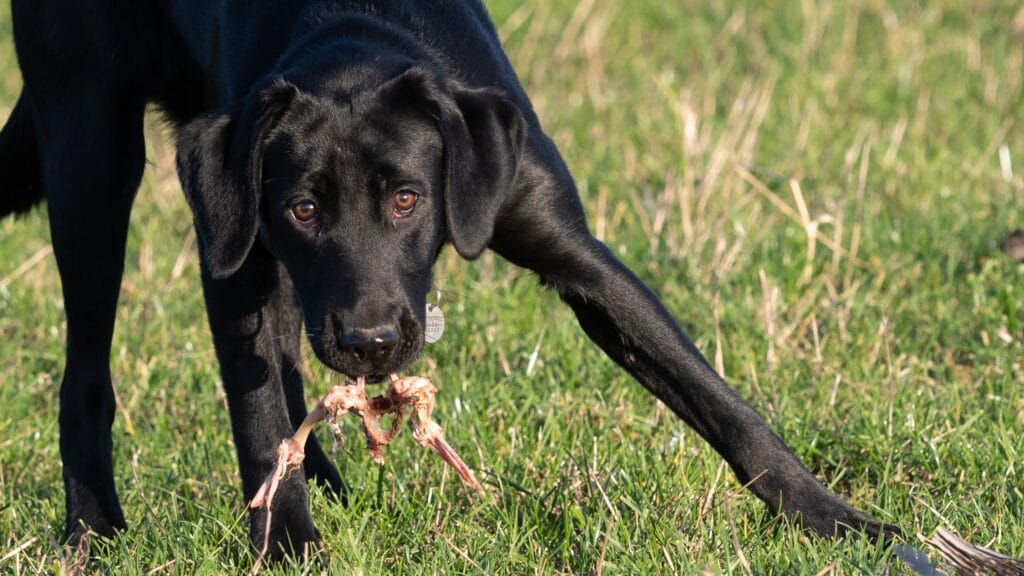
When they find food from somewhere, then don’t chase or reward them, as it can make this behavior permanent.
👉 Ignore begging:
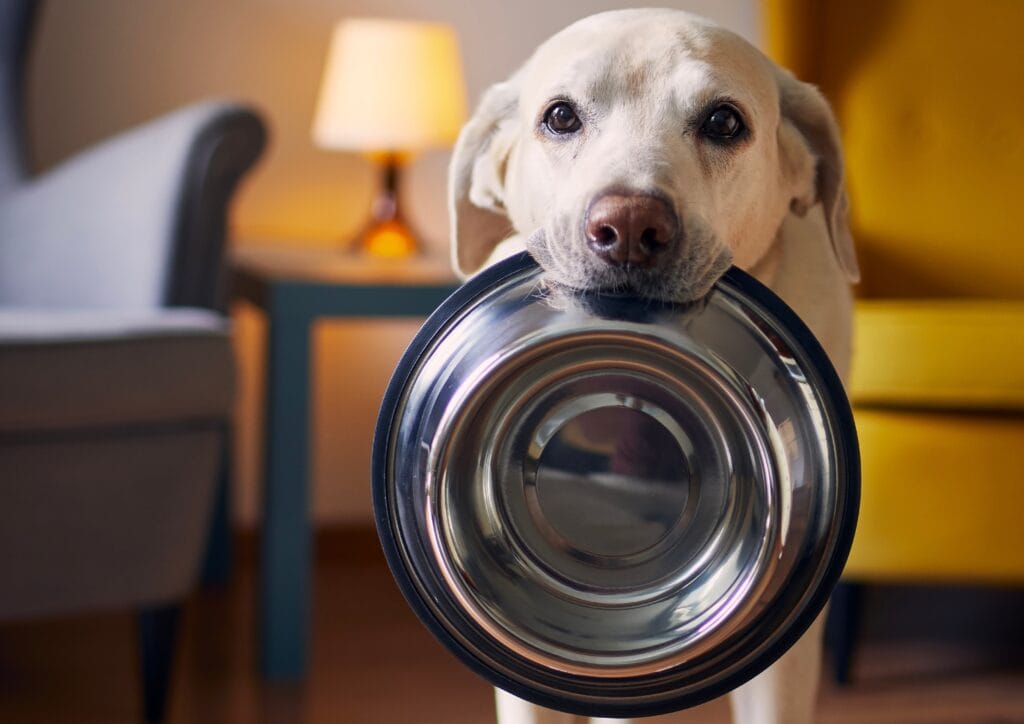
Always avoid rewarding begging by giving them some food as it can also make their behavior permanent.
👉 Make an increase in their physical activity:

An extremely tired lab is less likely to do scavenging than a Lab scavenging out of boredom.
👉 Exciting and interactive activities:

Play hide and seek, hide treats, fetch or you can also practice agility to keep them engaged.
👉 Use Muzzle:
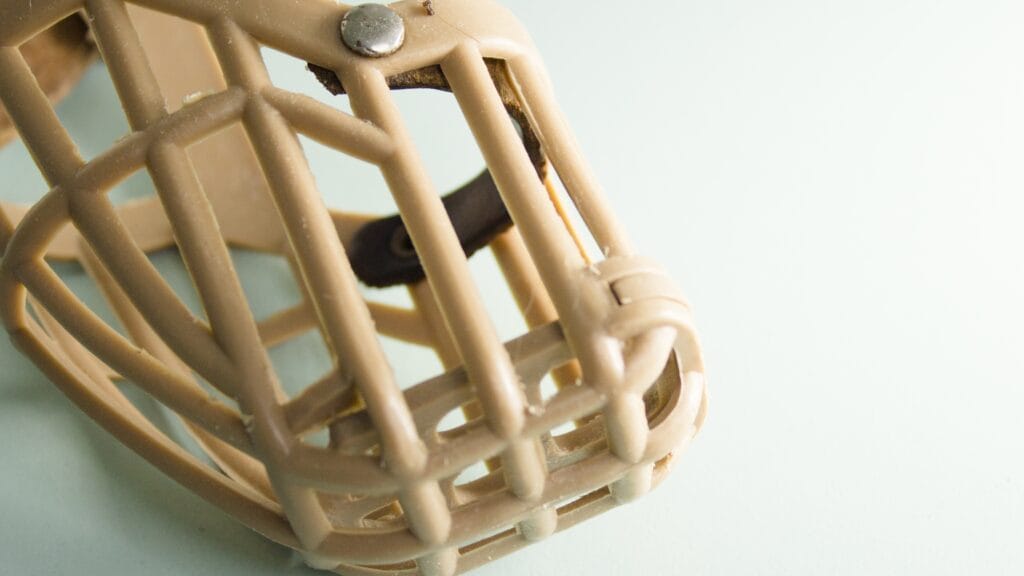
Sometimes, a basket muzzle is required to prevent scavenging during daily walks.
👉 Seek professional help:
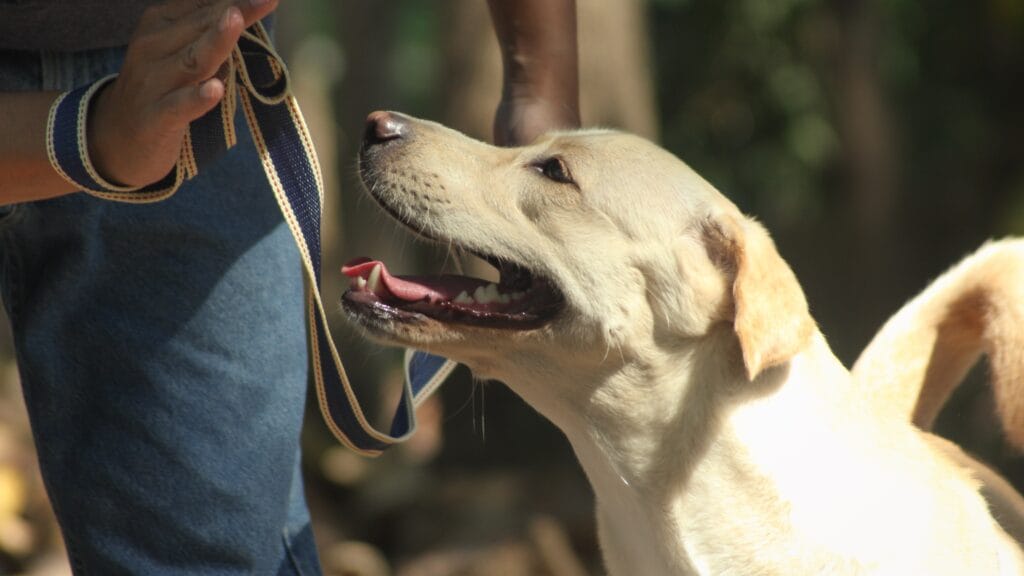
If the behavior of lab doesn’t seem well too you like eating non- edible items (PICA) or he is always very hungry due to POMC gene mutation, then you should go and make a visit to vet or a professional behaviorist.
Conclusion
Labs have an insatiable appetite. Their inherited gene mutation makes them so hungry that they sometimes also develop a problem called PICA, in which a lab eats non- edible items.
But there are several ways like increasing their physical activity, teaching them ‘Drop it’ and ‘Leave it’ command, and seeking professional help, that will help in avoiding lab to eat everything.
Thank you for reading this article and stay tuned for more!

